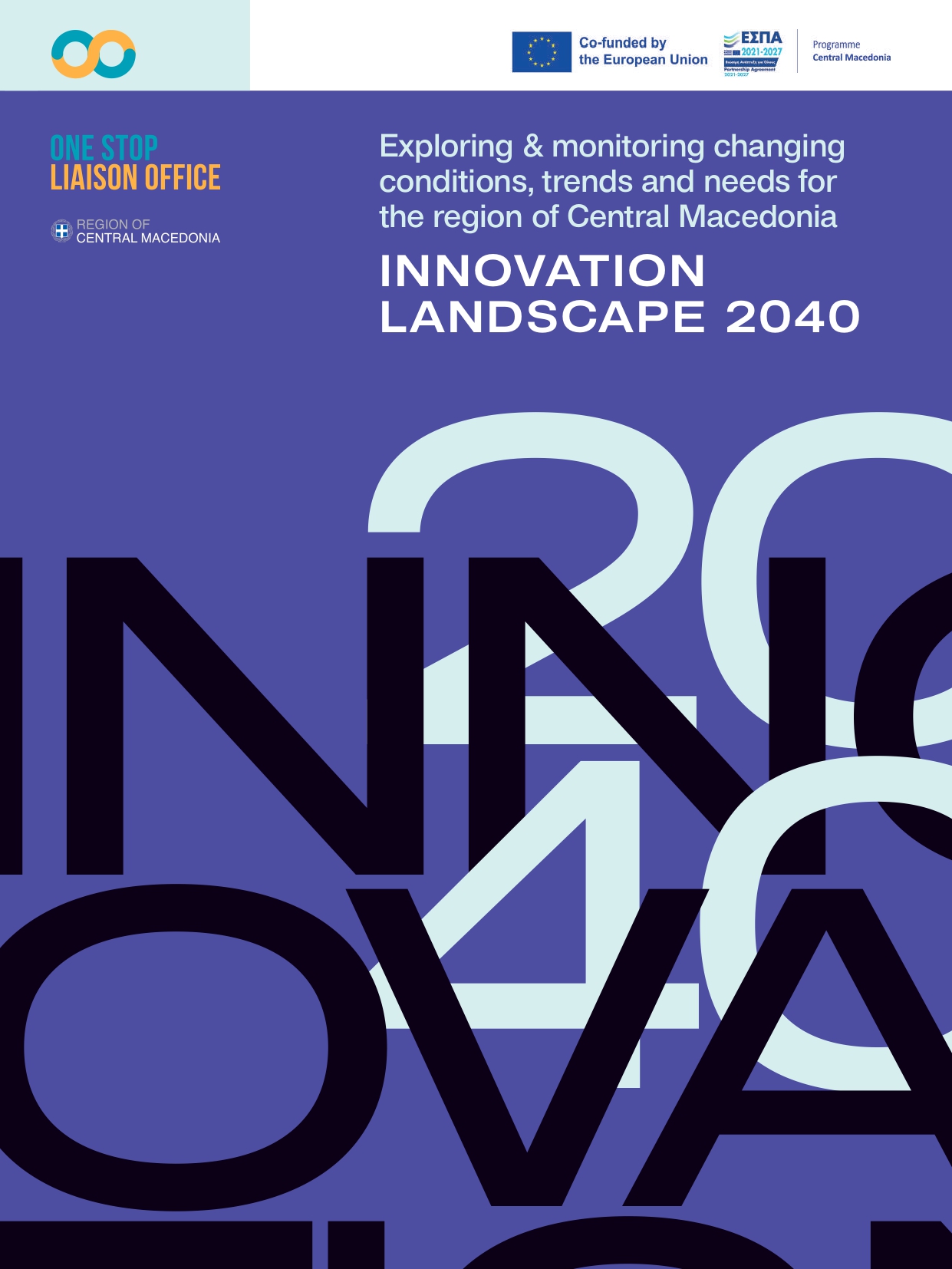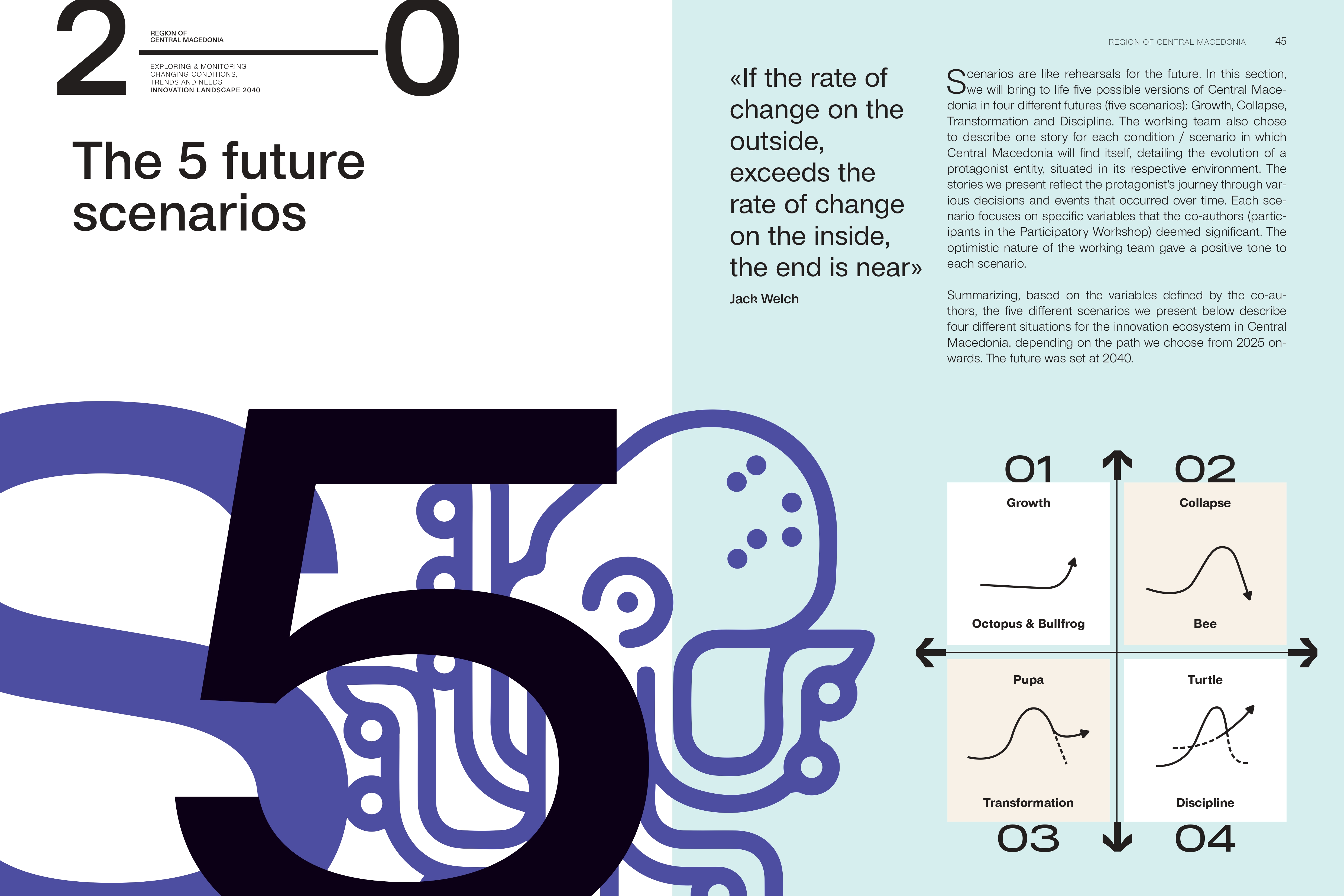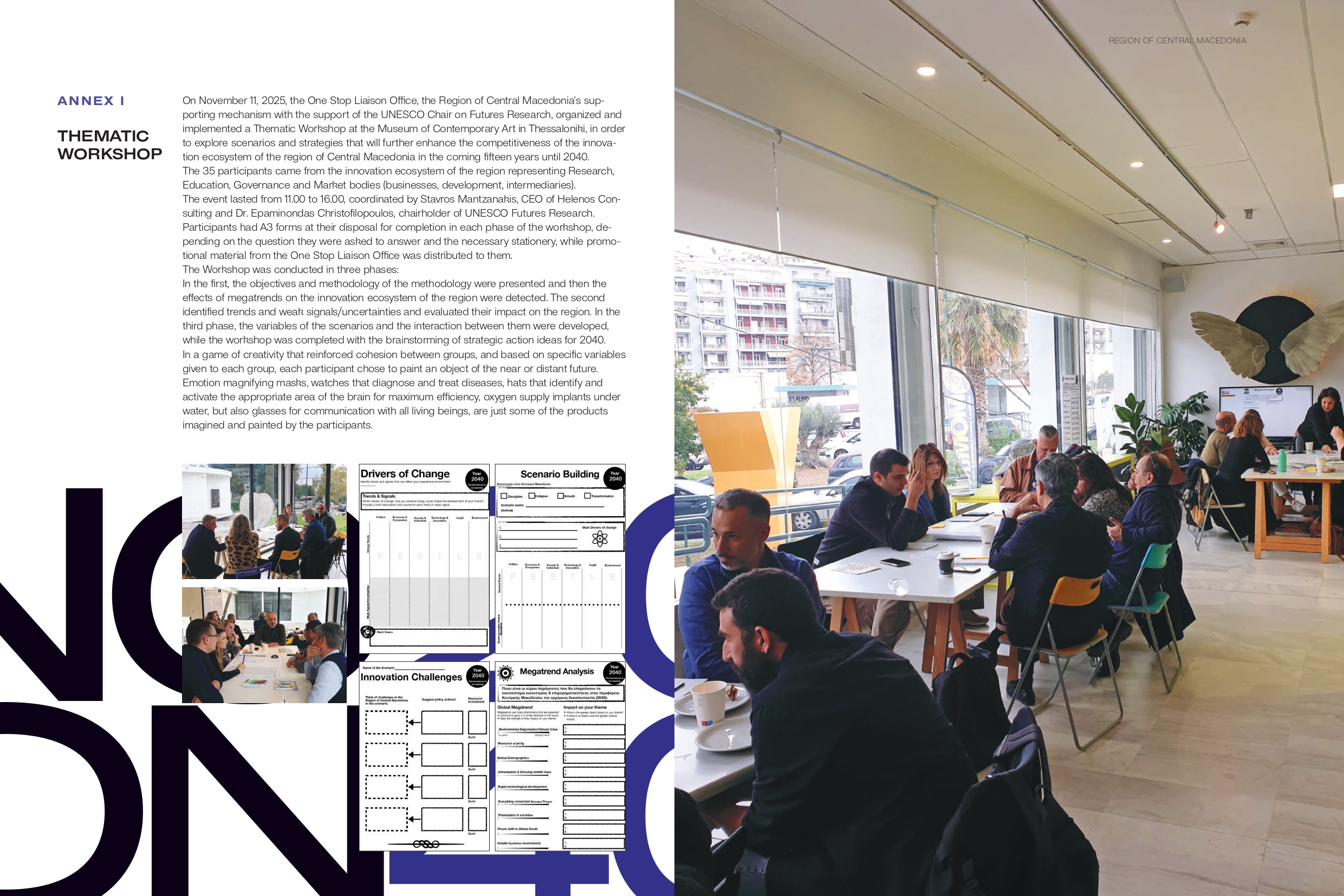From methodology to results, the new “INNOVATION LANDSCAPE 2040” study by the Region of Central Macedonia proves that innovation is a deeply human phenomenon — not merely a technocratic process reserved for startups, executives of large corporations and researchers. Based on a participatory workshop involving people from the region’s ecosystem, the study highlights, beyond a favorable investment climate, human capital and a supportive culture as key ingredients for the future of innovation in Central Macedonia.
Innovation will save us. Or maybe not. Often presented as the “recipe” for economic growth and improved performance indicators — a kind of magic formula known only to a select few — innovation tends to be treated as an exclusive club, with unknown entry requirements.
In reality, things are quite different, though. The African proverb “it takes a village to raise a child” applies perfectly to innovation: a process inherently collaborative and adaptable to constantly changing external conditions. Even the emergence of a single new idea depends on mechanisms often invisible to the naked eye — systems and networks of people who interact, exchange ideas, and share experiences. At the same time, global phenomena such as (geo)political turmoil, climate change and its impact on tourism and agriculture, and Artificial Intelligence with the automation of many processes, are redefining our priorities and needs, shaping new challenges and opportunities for innovation.

As the global landscape changes rapidly, the future becomes increasingly unpredictable. While in 2040 you might be able to search Amphibio.net for recycling spots in your neighborhood, in another future the PloQ platform organizes your entire diet routine, Kentri.Co Point serves as a collaboration hub for the textile industry — a key sector for Central Macedonia’s economy. In yet another future, we vacation at the fully automated four-season Nymfes Resort on the plains of Olympus, trying to restore our relationship with nature. In another, we continue to build our homes with traditional but now environmentally friendly construction materials from Kely.fos.
Parallel universes? Not exactly — these are fictional success stories that emerged from the five possible future scenarios explored in the “INNOVATION LANDSCAPE 2040” study, a participatory initiative by OSLO of the Region of Central Macedonia. Researchers, entrepreneurs, NGOs, public institutions, and citizens co-designed possible future scenarios for the region in 2040, discussed their implications for innovation, and proposed actions to strengthen resilience and foster new entrepreneurial activity — based on four different conditions: Growth, Discipline, Destruction, and Transformation.

Although the resulting scenarios differed — some more optimistic, envisioning strong regional growth, others more cautious or even pessimistic — the paradox (or not) is that everyone agreed on what Central Macedonia truly needs:
(a) Investment in human capital, through skills development and talent attraction and retention (brain gain);
(b) Cultivation of a supportive culture, through open innovation initiatives, awareness-raising, and technology transfer; and
(c) Creation of an attractive investment environment, by encouraging investment, entrepreneurship, and risk-taking.
The conclusion? While business incentives and foreign investments are important, perhaps the most crucial factor is human capital: creative people who want to stay in the region — not only to start businesses, but also to develop knowledge networks, spread positive attitudes toward risk and innovation, and establish (formally or informally) mechanisms that support and promote new ideas.

You can download and read the whole study here

